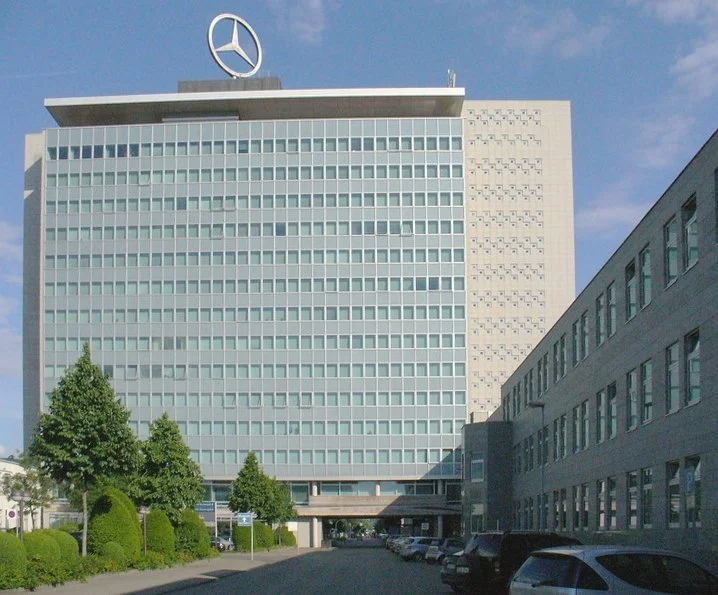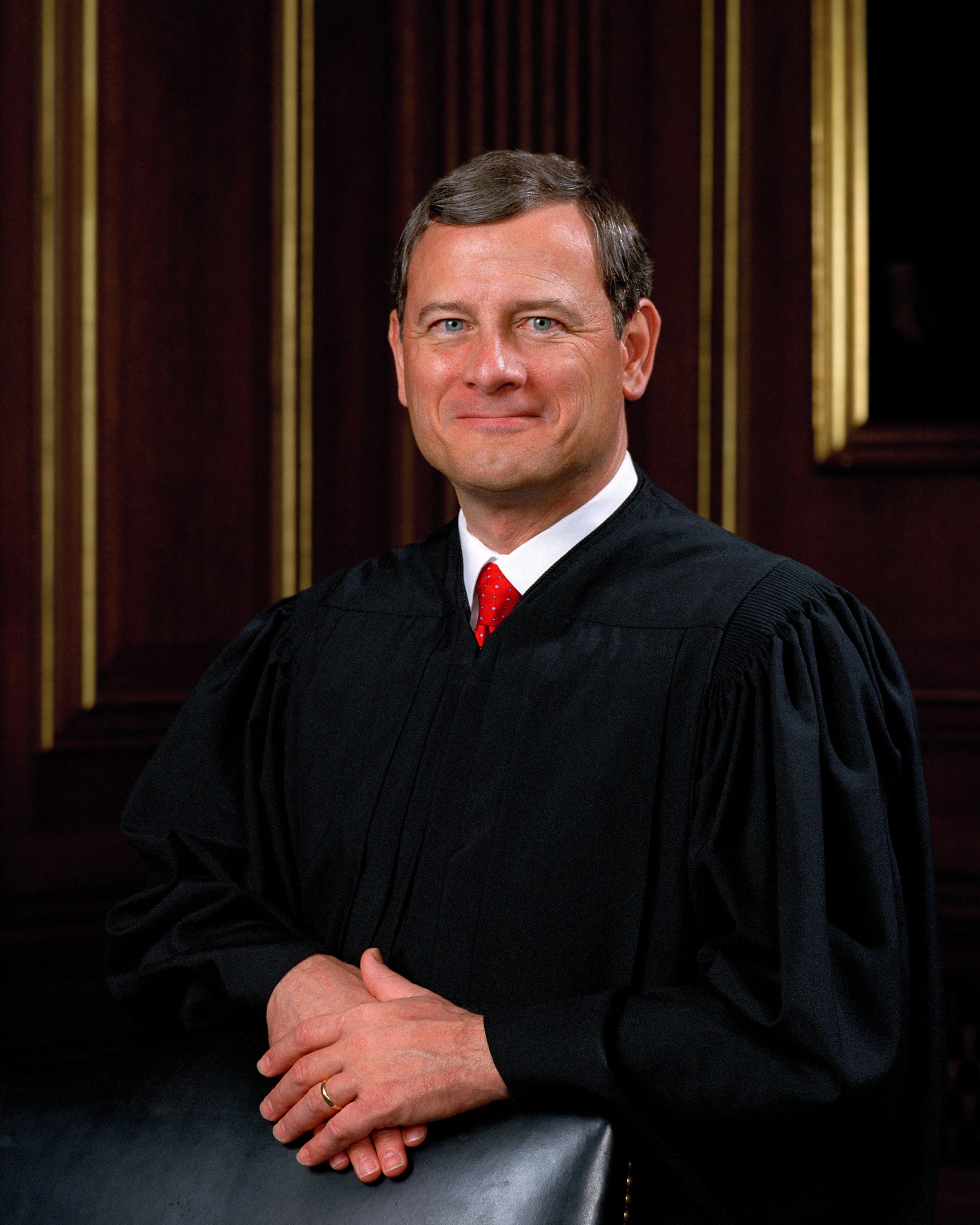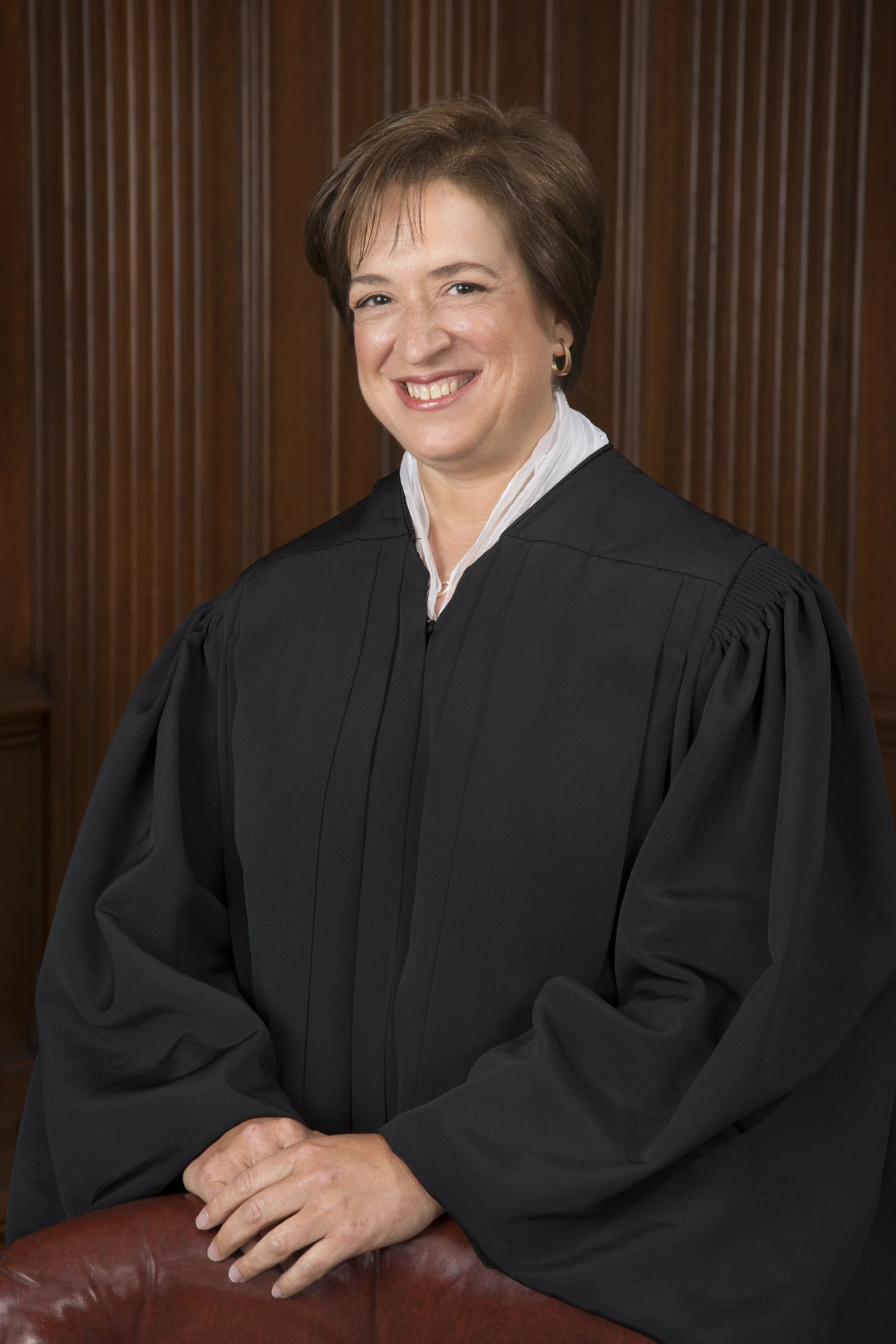Daimler AG v. Bauman
Key Principle
General Jurisdiction Test: General Jurisdiction may apply even when the events that gave rise to the case took place out of state if the defendant’s contacts with the forum state are so continuous and systematic that they are essentially at home in the state; for individuals, it’s generally established by domicile.
Case Overview
CITATION
ARGUED ON
DECIDED ON
DECIDED BY
571 U.S. 117
Oct. 15, 2013
Jan. 14, 2014
Legal Issue
Can a state court exercise jurisdiction over a non-resident defendant corporation if the conduct which gave rise to the case took place outside of the forum state?
Holding
Federal courts may exercise general jurisdiction over a defendant if their contacts with the forum state are so continuous and systematic that they are “essentially at home” in the state.
Daimler AG’s HQ in Stuttgart, Germany | Credit: Enslin
Background
In 2004, 22 Argentinian residents filed a complaint in the U.S. District Court for the Northern District of California against DaimlerChrysler Aktiengesellschaft (Daimler), a German company with its corporate and manufacturing operations taking place in Stuttgart, Germany. The complaint alleged that during Argentina’s “Dirty War”, which took place from 1976 to 1983, Daimler’s Argentinian subsidiary, Mercedes–Benz Argentina (MB Argentina) collaborated with state security forces to kidnap, detain, torture, and kill certain MB Argentina workers. Damages for the alleged human-rights violations were sought from Daimler under the laws of the United States, California, and Argentina. Jurisdiction over the lawsuit was predicated on the California contacts of Mercedes–Benz USA, LLC (MBUSA) as a subsidiary of Daimler; MB USA was incorporated in Delaware and had its principal place of business in New Jersey. MBUSA distributed Daimler-manufactured vehicles to independent dealerships throughout the U.S., including California.
Daimler filed a motion to dismiss for lack of personal jurisdiction, which the District Court granted on the grounds that Daimler’s affiliations with California were insufficient to support jurisdiction over them and the plaintiffs failed to demonstrate that MBUSA was an agent of Daimler. The Ninth Circuit Court of Appeals initially affirmed the District Court’s order, but they later reversed after rehearing the case. On appeal, SCOTUS granted certiorari to determine the authority of a U.S. court to hear a claim brought by foreign plaintiffs against a foreign defendant based on events occurring entirely outside the United States.
Summary
Unanimous decision for Daimler AG
Daimler AG
Bauman
Kennedy
Alito
Roberts
Thomas
Breyer
Sotomayor
Scalia
Kagan
Ginsburg
Opinion of the Court
Writing for the Court, Justice Ruth Bader Ginsburg held that general jurisdiction exists only when a corporation's affiliations with the forum state are so "continuous and systematic" as to render it "essentially at home" in that state. The paradigm forums for general jurisdiction are a corporation’s place of incorporation and principal place of business. These are the only places where a foreign corporation may be sued on any claim, regardless of whether it relates to the corporation’s forum activities. Justice Ginsburg explained that “continuous and systematic” business activity alone is insufficient for general jurisdiction since this language describes specific jurisdiction and not the standard for general jurisdiction. Instead, Justice Ginsburg stated that a corporation must have affiliations that are so substantial and pervasive in the forum state that it is essentially at home the forum state. She emphasized that since International Shoe v. Washington, specific jurisdiction has become the centerpiece of modern jurisdiction theory, while general jurisdiction has remained confined within traditionally recognized limits and “has not been stretched beyond” them. The Court rejected the agency theory, which would have held that a parent corporation could be subject to general jurisdiction for the contacts of their agent.
Regarding Daimler AG, Justice Ginsburg held that they were not “essentially at home” in California since neither Daimler nor MBUSA were incorporated there or had its principal place of business in the state, and MBUSA’s status as a subsidiary doing substantial business in California was insufficient to attach general jurisdiction to Daimler. Justice Ginsburg rejected the agency theory that imputed MBUSA’s California contacts to Daimler, arguing that it would permit general jurisdiction to be granted wherever a corporation had an in-state subsidiary. She argued that such an outcome was inconsistent with the principles of due process. Justice Ginsburg ultimately concluded that the exercise of general jurisdiction over Daimler would be “exorbitant”, as it would allow California courts to hear claims brought by foreign plaintiffs that have nothing to do with anything that took place in California.









